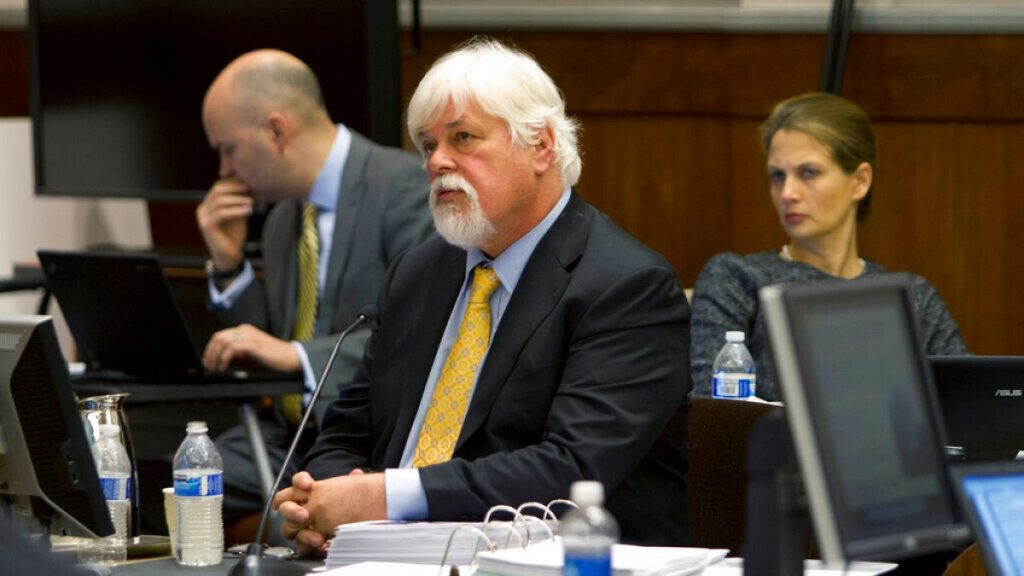Paul Watson, the controversial founder of the marine conservation activist group Sea Shepherd, has applied for political asylum in France to avoid facing a trial in Japan where he could be sentenced to up to 15 years in prison. The Danish court in Greenland has extended his custody until November 13 as they consider an extradition request from Japan. Watson is accused of ordering explosives to be thrown at a Japanese whaling vessel, obstructing its duties. Despite protests in France, Belgium, and support from celebrities like Pierce Brosnan, Watson’s fate remains uncertain as Denmark decides on his extradition.
Watson, a 73-year-old Canadian-American citizen, has a long history of activism in marine conservation. He co-founded Sea Shepherd after leaving Greenpeace in 1977 due to disagreements over tactics. Sea Shepherd is known for its aggressive direct action campaigns to protect marine animals like whales and dolphins. Celebrities and activists have supported Watson over the years, with the reality television show “Whale Wars” showcasing some of the group’s controversial high-seas confrontations with whaling vessels. However, critics argue that Watson’s arrest is a politically motivated attempt to downplay Japan’s sustainable whaling practices, which they claim are essential for scientific research.
French president Emmanuel Macron has yet to respond to Watson’s request for political asylum, which some have deemed as largely symbolic. The case has garnered international attention, with protesters demonstrating in France and Belgium for Watson’s release. EU lawmakers have also joined in the protests outside of the Danish embassy in Brussels. As Watson remains in custody in Greenland, the decision on his extradition to Japan lies in Denmark’s hands, despite the lack of an extradition treaty between the Scandinavian country and Japan.
The controversy surrounding Watson’s arrest highlights the ongoing debate over marine conservation efforts and confrontational tactics used by activist groups like Sea Shepherd. While some view Watson as a hero for his relentless advocacy for marine animals, others see him as a troublemaker whose actions disrupt diplomatic relations and international agreements. The case has prompted discussions about the balancing act between environmental advocacy and human rights, with supporters arguing for Watson’s release on the grounds of protecting marine wildlife from illegal whaling practices.
As the legal battle continues, Watson’s future remains uncertain, with the decision on his extradition to Japan pending in Denmark. The fate of the outspoken activist has sparked outrage and solidarity from supporters around the world, prompting calls for his release and highlighting the complex nature of environmental activism in the face of legal challenges. Despite the controversy surrounding his tactics, Watson’s commitment to protecting marine life remains undisputed, as the international community watches closely to see how his case unfolds in the coming weeks.













